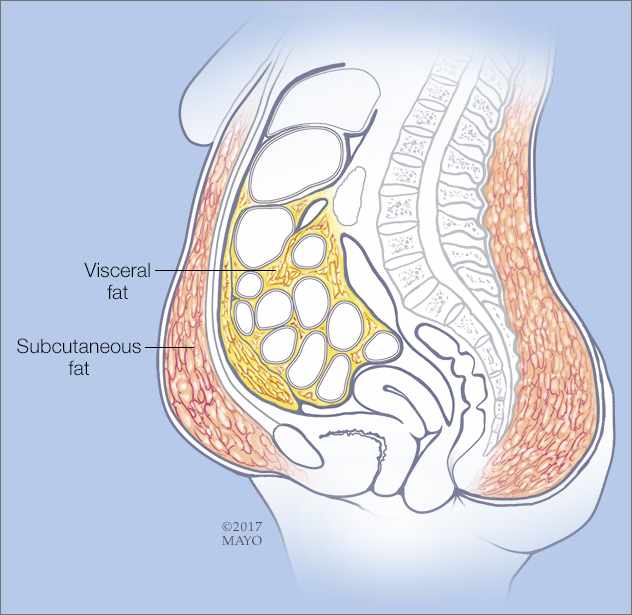-
Featured News
Women’s Wellness: Weight gain risks and challenges for women in midlife

ROCHESTER, Minn. – A review of the weight gain risks and challenges faced by women in midlife has led Mayo Clinic researchers to a series of recommendations for this patient population. The findings are published in this month's edition of Mayo Clinic Proceedings.
The average weight gain for women in their 50s and 60s is 1.5 pounds per year. For this group of women, much of that weight gain resides in the midsection. This type of fat is linked to a higher risk of cardiovascular disease, which is also the No. 1 cause of death for postmenopausal women. In addition to cardiovascular disease, central weight distribution puts this population at risk for abnormal glucose and lipid levels and high blood pressure.

Subcutaneous fat is the belly fat you can feel if you pinch excess skin and tissue around your middle. Visceral fat is belly fat that accumulates in your abdomen in the spaces between your organs. Too much visceral fat is strongly linked with a greater risk of serious health problems.
“This population of women faces multiple challenges for maintaining a healthy weight,” says Ekta Kapoor, M.B.B.S., a Mayo Clinic endocrinologist and the study’s lead author. “Mood changes, sleep disturbances, hot flashes and the many other changes of menopause can disrupt what may have previously been a healthy lifestyle.”
Mayo Clinic Women’s Health researchers recommend primary care providers screen this population of women for being overweight, and establish behavioral interventions, including psychological support, regular physical activity and changes in eating habits.
For those who are early into menopause, hormone therapy may be a consideration to manage menopausal symptoms. Decreasing menopausal symptoms enables women to focus on healthy lifestyle changes.
With hormones and metabolism against them, postmenopausal women face some of the highest rates of obesity in the country.
“In addition to the usual adverse consequences of obesity, postmenopausal women face some unique challenges posed by obesity, including worse hot flashes, sexual dysfunction and an increased cancer risk,” says Dr. Kapoor. “Targeting the lifestyle habits during midlife and beyond will help prevent further health consequences down the road. It’s never too late to start making healthy lifestyle choices.”
_____________________________________________________
This news release originally published Oct. 2, 2017
For media inquires contact: Kelley Luckstein, Mayo Clinic Public Affairs, 507-284-5005, newsbureau@mayo.edu







